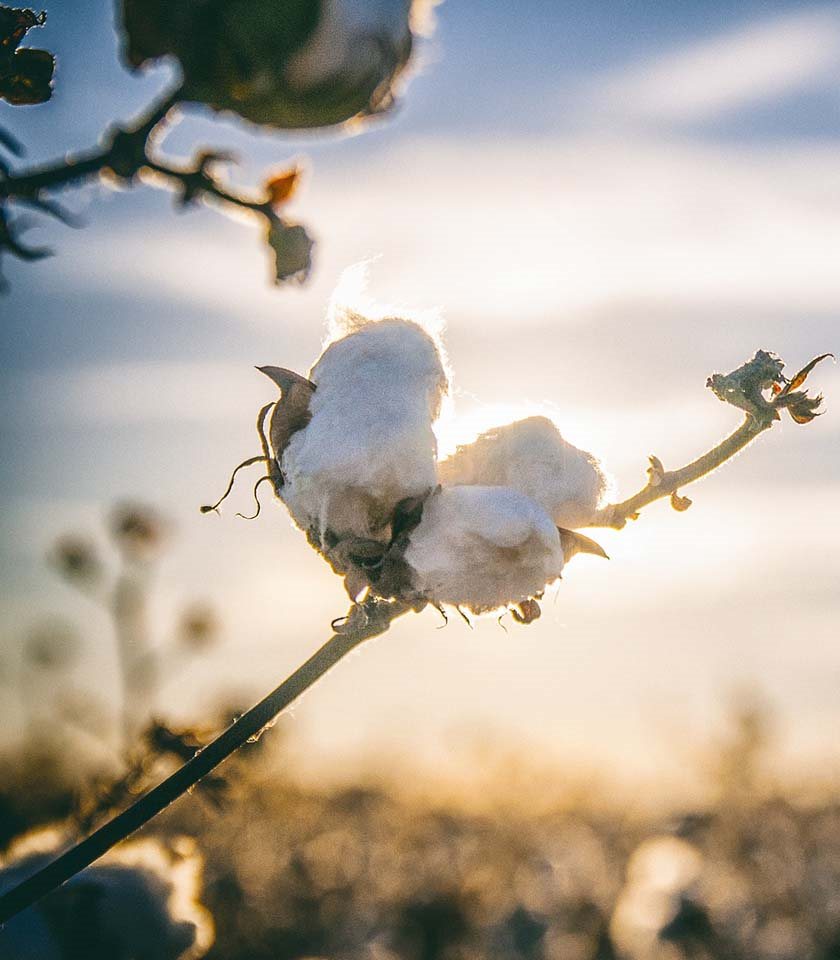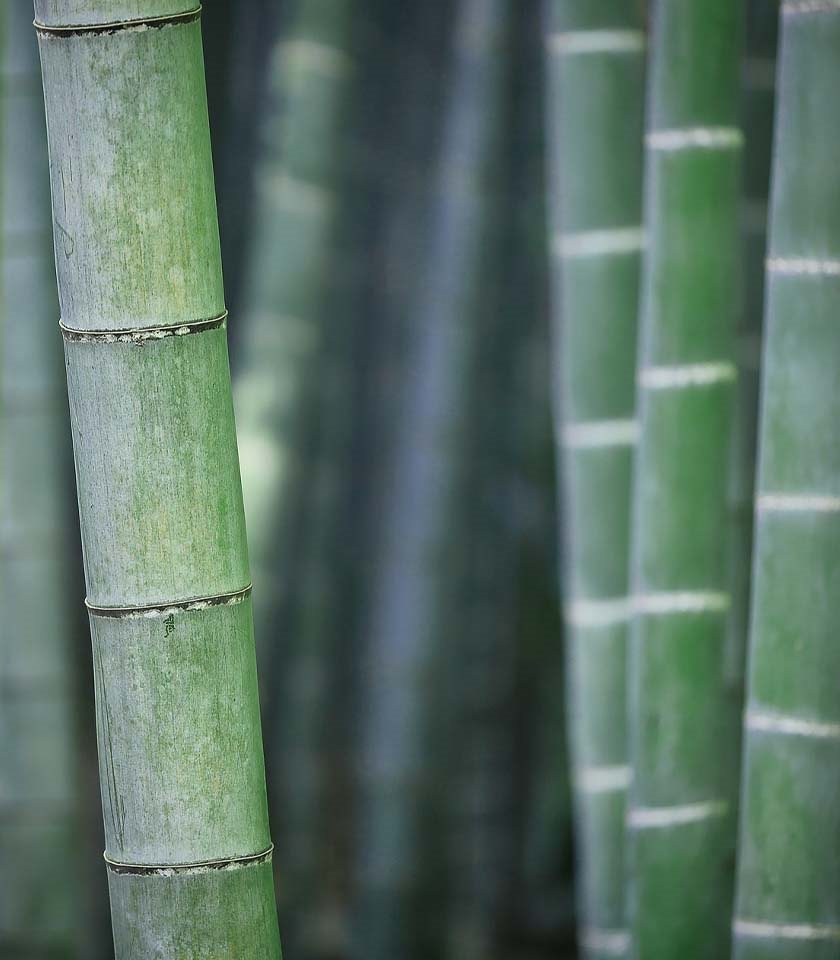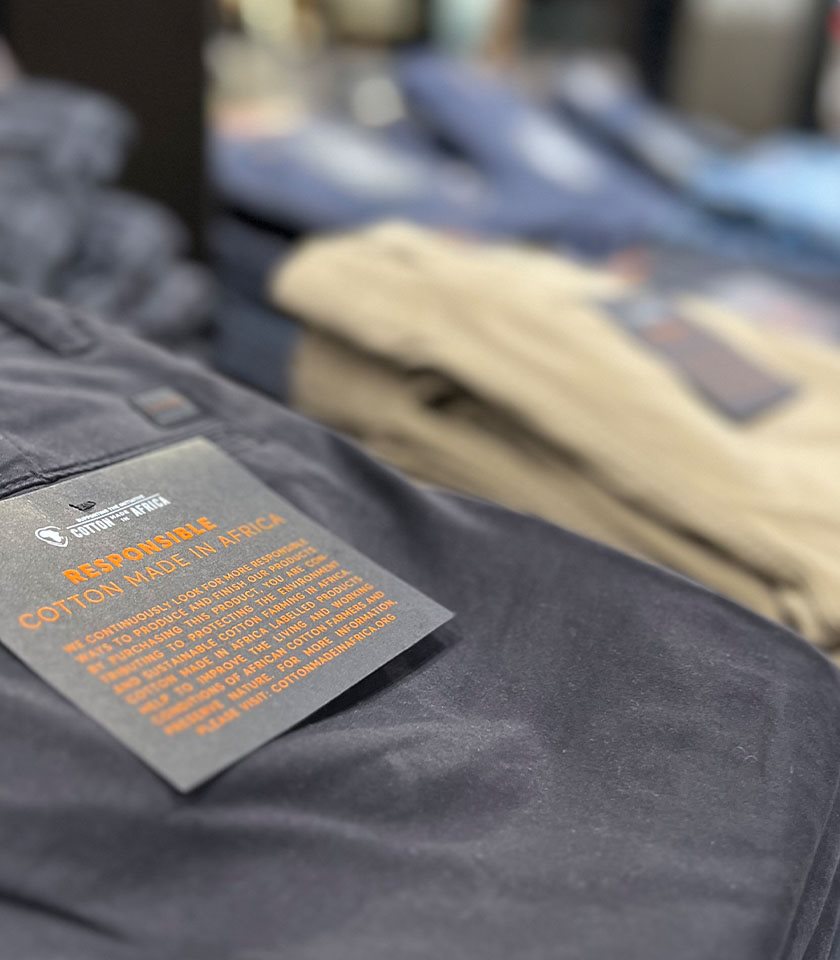
Materials
If we are all going to help take care of the global climate, we believe it is important that we don't just rely on one preconceived idea or one action. Just because we buy clothes made from organic or recycled materials, for example, doesn't necessarily mean we're making better climate decisions, but at the same time we believe that even small positive initiatives and conscious choices can have an impact in the long run. Even if a t-shirt is made from 100% organic cotton, bamboo or recycled materials, it does not mean that the t-shirt is 100% sustainable, but despite that, we believe it is a step in the right direction. We sell many different brands that produce clothing with, for example, organic cotton, bamboo or recycled materials. Each supplier produces their products in different parts of the world and they use different production methods. This also means that each supplier's climate footprint varies.

Cotton in general
Cotton has long been one of the most popular and widely used materials in the textile industry. This is because cotton, among other good qualities, has a high absorbency and is extremely soft. Unfortunately, although cotton has many good properties, the cultivation of conventional cotton is not without its problems. Conventional cotton cultivation uses chemicals that are harmful to both the soil and the people who work with the cotton. Furthermore, conventional cotton requires large amounts of water and is often grown in places where there is already a lack of clean water.
Specifics on organic cotton
As mentioned earlier, cotton is a popular and widely used material in the textile industry. Many of the products we sell therefore also contain conventional cotton. However, several of our suppliers have started to increasingly replace conventional cotton with organic cotton. Conventional and organic cotton differ mainly in the cultivation process.
The cultivation of organic cotton is subject to strict rules and requirements such as farmer training and optimisation. This means that organic cotton can only be grown using natural growth promoters, as opposed to the toxic chemicals used in conventional cotton. As a result, organic cotton is far less harmful to both the soil in which it is grown and the people who work with it. In addition, less water is used in the cultivation of organic cotton. In summary, growing organic cotton is more sustainable and less harmful to both soil and people.
You can find our range of products containing organic cotton here.
Bamboo
An increasing number of textile manufacturers have turned their attention to the bamboo plant for several reasons - bamboo is one of the more sustainable plants available. Capable of renewing itself, bamboo is one of the world's fastest growing tree-like plants - in fact, some bamboo species can grow up to a metre a day. So the bamboo plant can grow enormously fast naturally, without the need for harmful growth promoters. Furthermore, the bamboo plant only needs rainwater and therefore no irrigation is used in the cultivation of bamboo. This makes the plant one of the most resource-efficient and effective plants available.
Bamboo also contains a natural defence against bacteria and fungi. These two properties are preserved after felling, throughout the manufacturing process and even after repeated washing. Bamboo is therefore also particularly suitable for the production of, for example, underwear and socks, and the material is sought after by people with allergies or sensitive skin. In addition to the more sustainable and healthy properties of bamboo, bamboo is also enormously comfortable. It's exceptionally soft and comfortable on the skin. It is thermoregulating, sweat-wicking and antistatic. We understand why bamboo is increasingly used for production in the textile industry.
You can find our range of products containing bamboo here.


Bamboo
An increasing number of textile manufacturers have turned their attention to the bamboo plant for several reasons - bamboo is one of the more sustainable plants available. Capable of renewing itself, bamboo is one of the world's fastest growing tree-like plants - in fact, some bamboo species can grow up to a metre a day. So the bamboo plant can grow enormously fast naturally, without the need for harmful growth promoters. Furthermore, the bamboo plant only needs rainwater and therefore no irrigation is used in the cultivation of bamboo. This makes the plant one of the most resource-efficient and effective plants available.
Bamboo also contains a natural defence against bacteria and fungi. These two properties are preserved after felling, throughout the manufacturing process and even after repeated washing. Bamboo is therefore also particularly suitable for the production of, for example, underwear and socks, and the material is sought after by people with allergies or sensitive skin. In addition to the more sustainable and healthy properties of bamboo, bamboo is also enormously comfortable. It's exceptionally soft and comfortable on the skin. It is thermoregulating, sweat-wicking and antistatic. We understand why bamboo is increasingly used for production in the textile industry.
You can find our range of products containing bamboo here.

Recyclable materials
"Recyclable materials" is a broad concept that is interpreted and understood in many different ways. In our view, the term should be understood as an umbrella term for new products that are (partially) composed of previously similar products, or of other types of products that are transformed through mechanical or chemical processes into fibres that can be incorporated into new products. Textile products produced from recycled materials can therefore consist of both former textile products or recycled raw materials from other industries, for example plastic bottles or plastic bags.
We do not believe that recycling of raw fibres and other materials in isolation makes the textile industry sustainable, but we certainly believe that recycling is one more important initiative in the effort to create a less environmentally damaging textile industry. At KAUFMANN you can find products containing different types of recyclable materials, including for example recycled cotton, nylon, polyamide and polyester. You can find the products here.
We clearly believe that recycling is a positive initiative, but we also believe that there are considerations you can make before buying new or disposing of already purchased garments. When buying new garments, we recommend that you choose high quality garments. This is partly because quality products often have a longer shelf life in themselves, and partly because a carefully selected product of a high quality and standard is often appreciated for longer.